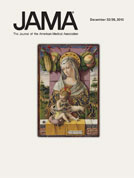 Biochemical Journal has retracted two articles by Naoki Mori, bringing the total number of pulled papers by the Japanese cancer researcher to sixteen.
Biochemical Journal has retracted two articles by Naoki Mori, bringing the total number of pulled papers by the Japanese cancer researcher to sixteen.
As with the previous Mori retractions, the latest ones — of papers published in 2007 and 2010 — involve unreliable images. Mori, you’ll recall, had recycled control blots from study to study over the years, and was dismissed from his academic post in August.
The 2007 paper, “Activation of hypoxia-inducible factor 1 in human T-cell leukaemia virus type 1-infected cell lines and primary adult T-cell leukaemia cells,” also included a frequent co-author Mariko Tomita, who has been implicated in the deception. It has been cited 15 times, according to Thomson Scientific’s Web of Knowledge. The 2010 article, “Inhibition of Akt/GSK3β signalling pathway by Legionella pneumophila is involved in induction of T-cell apoptosis,” has not yet been cited.
In each case, the retraction notice is the same: Continue reading Two more retractions for Mori make 16 — but not a record








